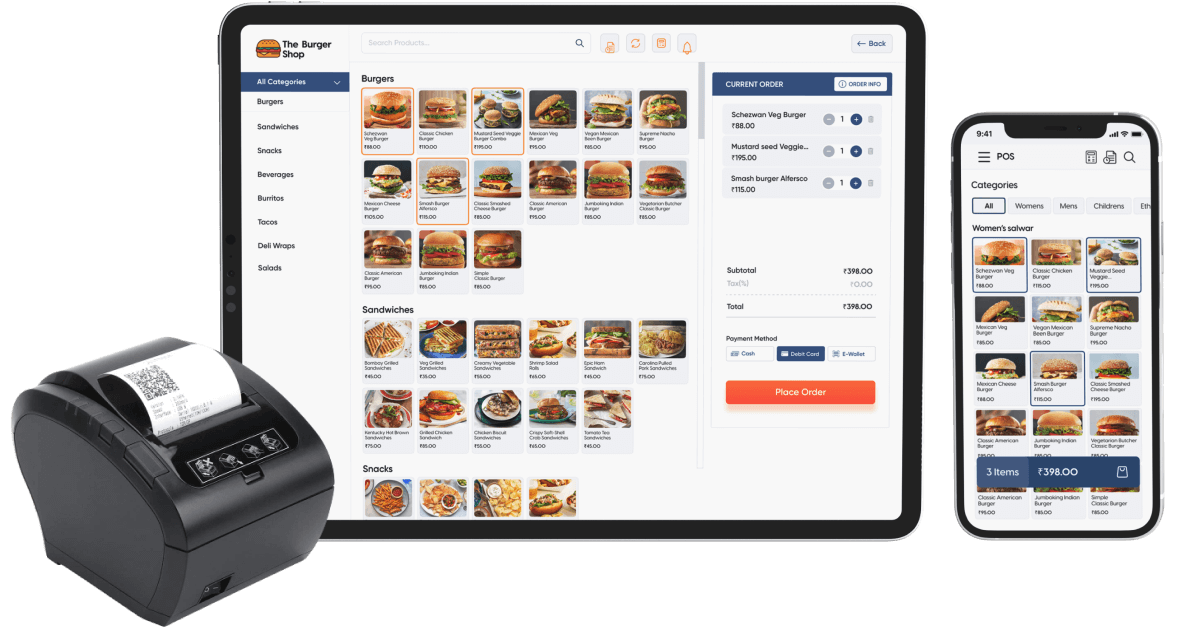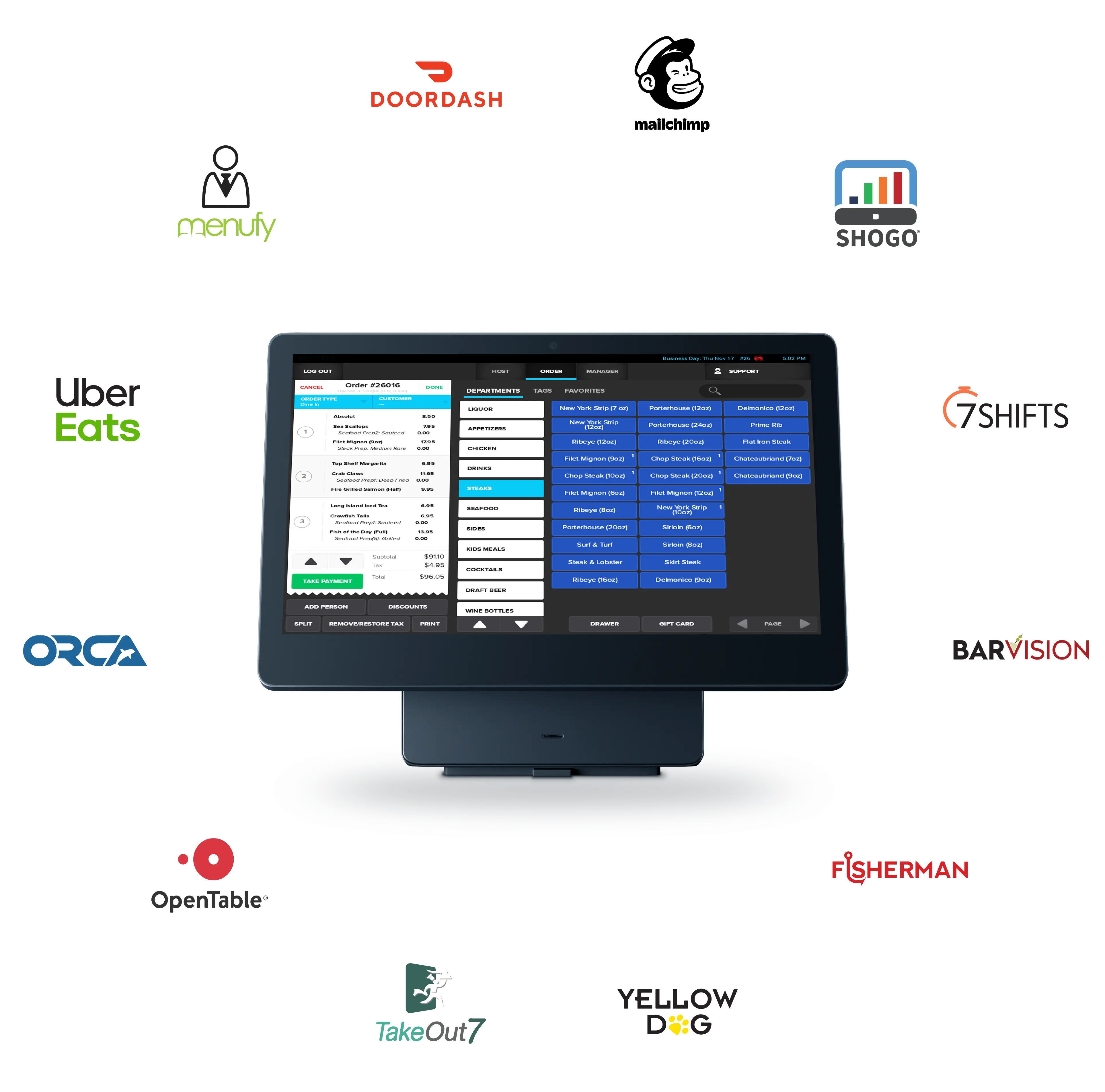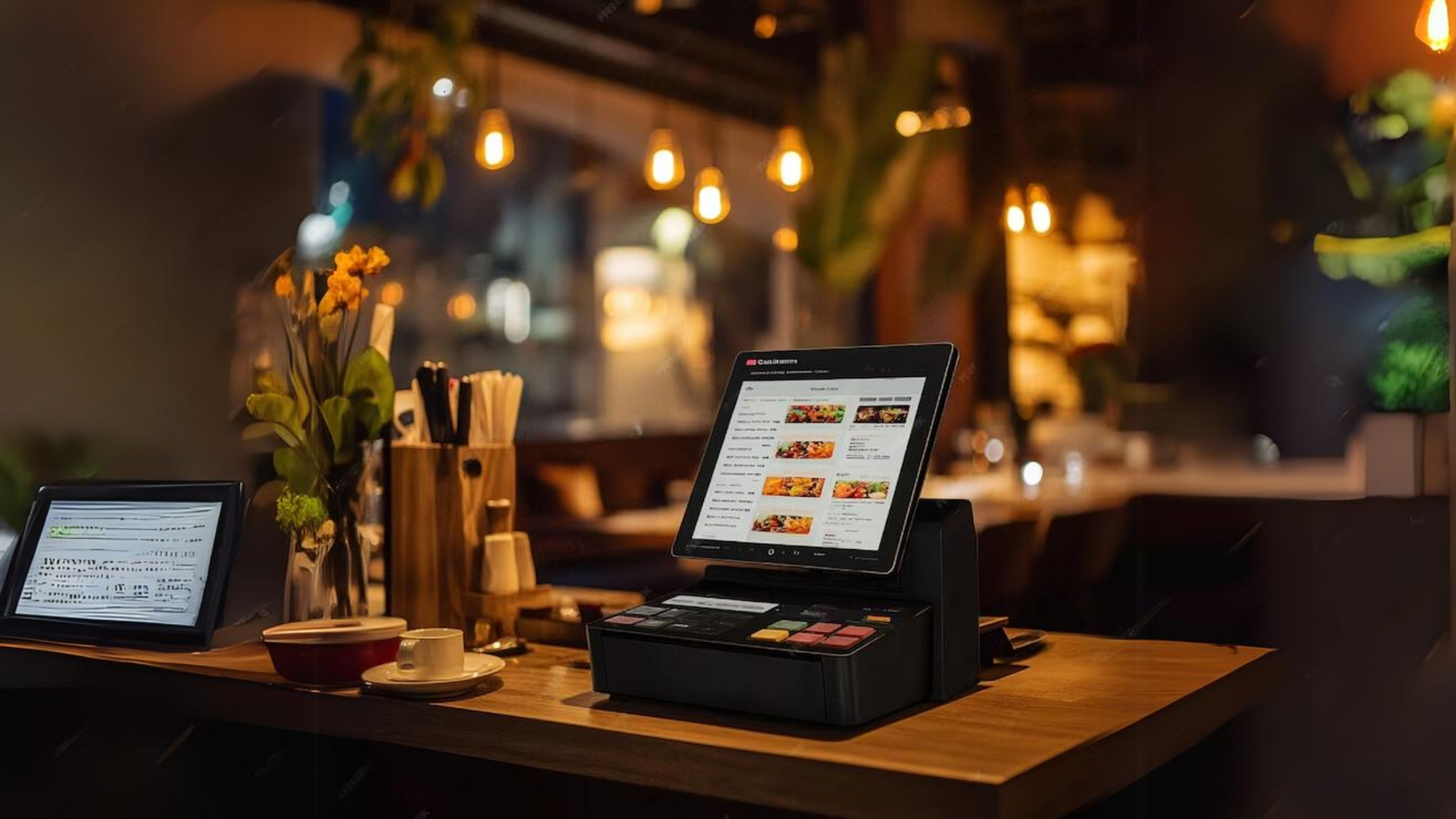Restaurant POS Software platforms vs. manual tracking: Which is more efficient?
Recognizing the Significance of POS Software in Modern Retail Procedures
In today's retail landscape, the function of POS software has actually ended up being progressively substantial. These systems have transformed from fundamental sales register to diverse devices that enhance various facets of operations. They not just enhance purchases yet additionally give insights that can shape business methods. Comprehending just how these systems impact consumer experience and supply management is important for any type of retailer looking for to continue to be affordable. The implications of these developments require additional expedition.
The Evolution of POS Software: From Transaction Processing to Comprehensive Solutions

Enhancing Consumer Experience Through Advanced POS Features

Enhancing Supply Management With Integrated POS Systems
Integrated POS systems play an essential role in improving stock administration by automating processes that generally called for substantial manual initiative. These systems make it possible for retailers to track stock levels in actual time, getting rid of discrepancies that commonly develop from hand-operated stock counts. With features such as barcode scanning and automatic supply replenishment signals, organizations can keep excellent supply degrees without overstocking or stockouts.Furthermore, incorporated POS systems help with accurate projecting by examining historic sales information, enabling sellers to make informed buying decisions. This predictive capacity assists companies adapt to transforming consumer demands and seasonal fads a lot more effectively.Additionally, the centralization of inventory information across multiple sales networks improves presence, enabling retailers to manage their supply more successfully. Eventually, the combination of POS systems into supply administration streamlines operations, lowers human mistake, and adds to enhanced profitability.
Real-Time Sales Tracking and Reporting for Informed Decision-Making

Accurate stock management lays the groundwork for efficient sales monitoring and coverage. Real-time sales tracking makes it possible for stores to keep track of sales performance as it occurs, providing immediate insights right into consumer getting patterns and fads. This capacity permits organizations to react promptly to fluctuations popular, optimizing supply degrees and minimizing overstock or stockouts.Moreover, integrated POS systems help with the generation of in-depth reports, highlighting key metrics such as sales by group, time durations, and specific products. Such reporting capabilities encourage merchants to make data-driven choices, determining successful approaches and locations needing renovation.
The Duty of POS Software in Client Connection Management
POS software plays a necessary role in boosting customer connection administration by making it possible for merchants to apply personalized advertising techniques. By evaluating consumer data, businesses can customize promotions and communications to fulfill individual choices. Additionally, these systems promote the advancement of boosted loyalty programs that urge repeat company and enhance client involvement.
Personalized Advertising And Marketing Approaches
As stores significantly look for to enhance client commitment and interaction, personalized advertising approaches have become a necessary element of reliable customer connection administration. POS software plays an important role in this process by accumulating and analyzing customer data, enabling merchants to customize marketing efforts to private choices and shopping habits. By leveraging understandings from acquisition backgrounds, stores can create targeted promos and personalized communications that resonate with customers, fostering a much deeper connection. In addition, the assimilation of POS software with customer relationship administration systems permits seamless monitoring of consumer communications, ensuring that advertising approaches continue to be pertinent and prompt (Restaurant POS Software). This data-driven strategy not only improves client contentment yet likewise drives sales and motivates repeat company, click to investigate solidifying the merchant's market placement
Boosted Loyalty Programs
Merchants are progressively identifying the significance of loyalty programs in cultivating lasting client relationships and enhancing total involvement. POS software plays an important duty in the growth and administration of these programs, enabling sellers to track client acquisitions, preferences, and habits efficiently. By leveraging data analytics, services can develop customized incentives and incentives that reverberate with private consumers, thereby increasing involvement in loyalty programs. Furthermore, POS systems enable seamless combination with mobile apps and electronic systems, assisting in easy accessibility to incentives and promos. This not only boosts customer satisfaction however also drives repeat service. Ultimately, POS software equips stores to grow much deeper links with their clientele, transforming periodic shoppers right into dedicated patrons through targeted and meaningful involvement approaches.
Integrating POS Systems With E-Commerce Platforms for Omnichannel Success
To accomplish real omnichannel success, seamless assimilation in between point-of-sale (POS) systems and e-commerce platforms is important. This assimilation enables sellers to link their inventory monitoring, making sure that product schedule is properly mirrored throughout both online and physical stores. Consumers gain from a cohesive buying experience, where they can easily switch between networks without experiencing discrepancies.Furthermore, incorporated systems facilitate real-time data sharing, allowing companies to assess customer behavior and preferences better. This data-driven approach permits retailers to tailor marketing methods and enhance stock levels, ultimately enhancing consumer satisfaction and driving sales.Additionally, the ability to process article source transactions throughout systems simplifies procedures, minimizing the risk of errors and enhancing general performance. As merchants significantly take on omnichannel approaches, the assimilation of POS systems with e-commerce systems stays an essential variable in attaining sustainable growth and keeping competitive benefit in the dynamic retail landscape.
Future Fads in POS Innovation and Their Impact on Retail Procedures
As retail operations evolve, future fads in POS modern technology are established to reshape the landscape significantly. The rise of cloud-based remedies, technologies in mobile POS systems, and the advantages of AI integration are amongst the key growths expected to improve effectiveness and customer experience. These improvements promise to enhance procedures and foster a much more vibrant retail environment.
Cloud-Based Solutions Increase
With the increasing reliance on innovation, cloud-based POS solutions are changing retail operations by offering enhanced adaptability and scalability. These systems make it possible for merchants to gain access to real-time information from anywhere, helping with better decision-making and client service. By leveraging cloud infrastructure, services can reduce in advance costs related to software and hardware setups while guaranteeing seamless updates and upkeep. Additionally, cloud-based remedies support multi-location monitoring, enabling retailers to integrate inventory and sales throughout various electrical outlets effortlessly. This adaptability is essential in today's hectic market, where customer choices shift swiftly. As more stores embrace these services, they can expect better functional efficiency and a more responsive method to market demands, ultimately enhancing consumer contentment and commitment.
Mobile POS Innovations
The advancement of retail innovation continues to form operations, specifically with the rise of mobile POS technologies. These systems allow sellers to process deals anywhere within the store, enhancing consumer engagement and enhancing checkout procedures. Mobile POS solutions improve inventory management by permitting instantaneous access to supply degrees, aiding personnel aid clients much more successfully. Additionally, they facilitate tailored buying experiences with integrated client data and commitment programs. As mobile devices come to be increasingly sophisticated, sellers are adopting features such as contactless repayments and digital receipts, in addition maximizing the acquiring journey. The shift towards mobile POS not only improves operational effectiveness however likewise straightens with the growing customer preference for comfort, making sure that retailers remain competitive in a quickly progressing market.
AI Combination Benefits
AI combination represents a transformative jump in POS innovation, supplying sellers a myriad of advantages that boost operational efficiency and client experience. By leveraging device discovering algorithms, retailers can examine acquiring patterns and maximize stock management, lowering waste and stockouts. Additionally, AI-powered analytics provide individualized advertising and marketing referrals, allowing targeted promos that raise customer engagement imp source and commitment. In addition, chatbots and digital aides streamline client service, enabling quicker resolution of queries and improving the general purchasing experience. Anticipating analytics can additionally anticipate demand trends, enabling smarter staffing and resource allocation. Ultimately, the integration of AI in POS systems empowers retailers to make data-driven choices, cultivating a competitive edge in an ever-evolving retail landscape.
Regularly Asked Concerns
What Are the Expenses Connected With Implementing POS Software?
The costs connected with applying POS software can consist of software licensing fees, equipment costs, setup fees, training expenses, and recurring upkeep. Each variable adds to the general investment essential for a successful execution.
Exactly How Can Small Retailers Take Advantage Of POS Systems?
Tiny sellers can take advantage of POS systems via improved purchase efficiency, structured supply management, and enhanced client understandings. These systems enable much better decision-making, inevitably leading to enhanced sales and consumer fulfillment in affordable markets.
What Equipment Is Required for a POS System?
A typical POS system requires crucial hardware components, including a touchscreen screen, money cabinet, barcode scanner, receipt printer, and settlement terminal. These components interact to facilitate efficient purchase processing and inventory monitoring for retailers.

Can POS Software Be Custom-made for Certain Retail Needs?
POS software can without a doubt be tailored to fulfill details retail needs. Restaurant POS Software. This versatility permits organizations to tailor functions, interfaces, and coverage devices, boosting functional efficiency and supplying a more tailored experience for both staff and customers
Just How Protected Is Consumer Data in POS Systems?
The safety of consumer data in POS systems varies extensively. Many systems apply encryption, safe accessibility controls, and routine updates, but vulnerabilities can still exist, demanding ongoing caution and proactive steps from stores to safeguard delicate details.